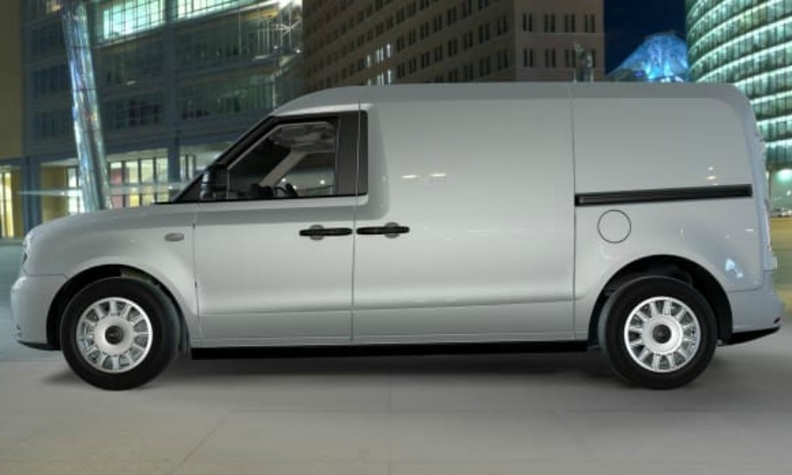LONDON -- Geely’s London Electric Vehicle Company ( LEVC) is delaying the launch of its planned plug-in hybrid van by at least two years because of stiffer competition and global market changes.
The one-ton van was to be based on LEVC’s plug-in hybrid London taxi and the company had finished much of the development ahead of its planned launch this year. However, changes to the van’s design will now push the launch back to the “early 2020s,” LEVC CEO Chris Gubbey told Automotive News Europe. “Like the rest of the industry, we are facing a number of macro challenges, stiffer competition and developing technology,” he said.
The new van will now be developed in closer partnership with Geely’s New Energy Commercial Vehicles arm (GVC) to make it more relevant for China, LEVC said. GVC sells electric commercial vehicles in China under the Yuan Cheng Auto brand.
LEVC’s plan is still to build the van in the UK for European sales, with additional production in China for local sales there, Gubbey said. It will remain a plug-in hybrid but will not now use the taxi’s lightweight bonded aluminum platform.
“The architecture is not 100 percent set, but it will be a new development. That’s what’s driving the timing difference,” Gubbey said.
LEVC had planned for the production of the hybrid van to eventually account for half of the output at LEVC’s plant near Coventry, UK, by 2022 at around 5,000 a year. That target will now move back, Gubbey said, without giving a timeframe.
LEVC sold around 1,200 of its plug-in hybrid TX taxis last year, and aims to more than double that this year, Gubbey said. As well serving the London taxi market, LEVC sells the six-seat vehicle in the Netherlands and Germany and will add France to its export markets this year.
The new van will be cheaper, Gubbey said, addressing a concern of the original van that it would be far too expensive for its target market. No price had been set but it was expected to be close to the 55,599-pound ($71,000) taxi price, which shares many of its parts with the Volvo XC90 SUV.
A cheaper van would compete better against a range of new full-electric or plug-in hybrid vans on sale or promised for launch in the near future. StreetScooter, a company set by the Deutsche Post DHL Group to build electric delivery vans specific to its needs, expanded production last year to give it a 20,000 a year capacity.
Ford will unveil its plug-in hybrid Transit Custom this year, and in 2020 PSA will launch a range of electric vans starting with Opel/Vauxhall. A year later VW could be ready to launch its retro-style Buzz electric cargo van.

